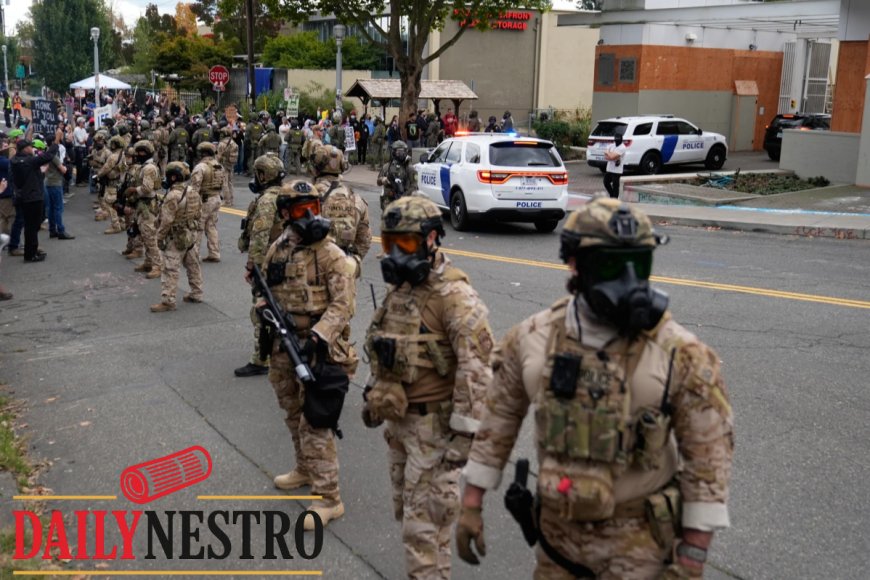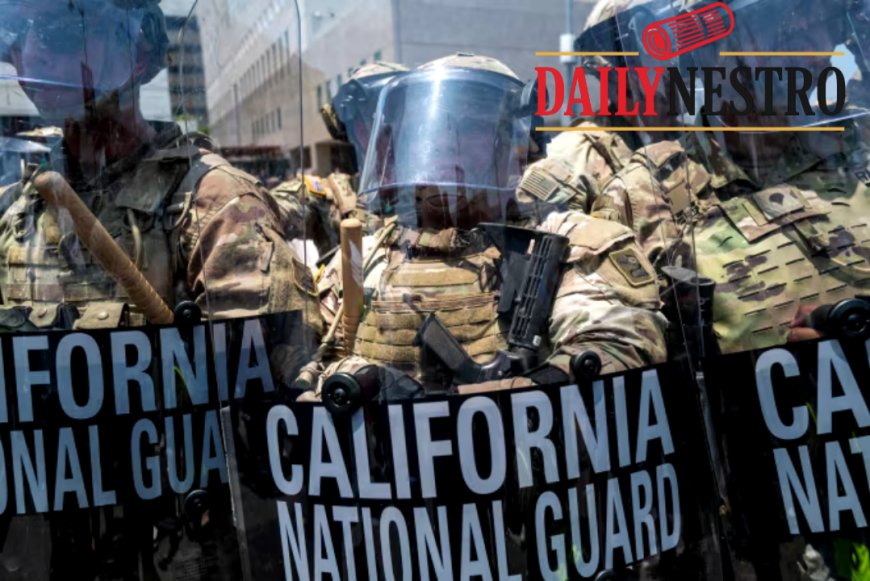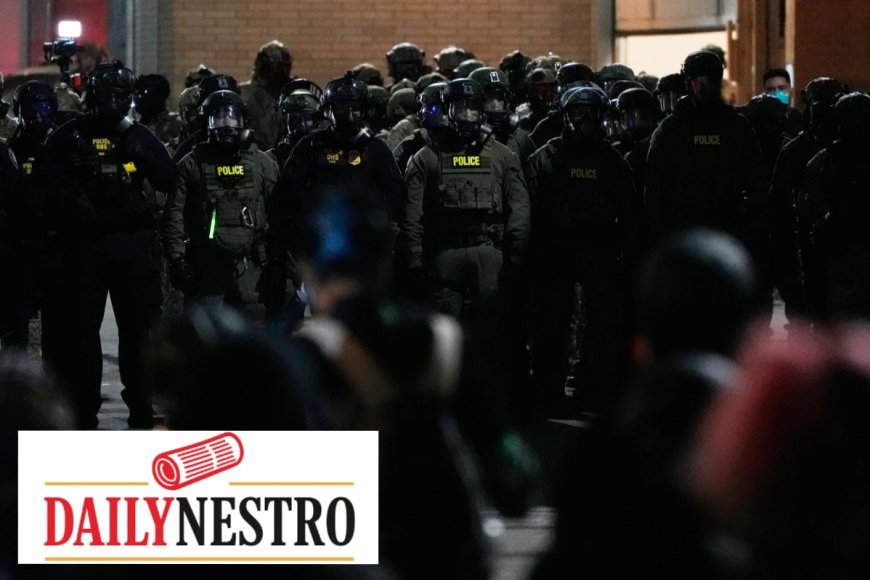Breaking news:California National Guard Deployed to Oregon After Judge Blocks Local Troop Order
The California National Guard has arrived in Oregon after a federal judge blocked the deployment of Oregon’s own troops. The move, ordered by President Trump, has sparked legal and political tensions between state and federal authorities as governors Gavin Newsom and Tina Kotek condemn the decision as federal overreach.

California National Guard Arrives in Oregon After Judge Halts Local Troop Deployment
In a surprising turn of events amid ongoing tensions between federal and state authorities, members of the California National Guard have begun arriving in Oregon.
This move comes just days after a federal judge temporarily blocked President Donald Trump's plan to deploy Oregon's own National Guard troops to Portland. Oregon Governor Tina Kotek confirmed the arrival, highlighting the escalating federal intervention in state matters.
Background on the Deployment Decision
President Trump, now in his second term, has been vocal about addressing what he perceives as rampant crime and unrest in several American cities. Portland, Oregon, has been a focal point due to nightly protests centered around the U.S. Immigration and Customs Enforcement (ICE) building. Trump has described the city as a "war zone" and "war-ravaged," rhetoric that local officials and residents have dismissed as exaggerated and inaccurate.
These protests, while persistent, have been relatively small in scale compared to past demonstrations, according to reports from Oregon authorities.On Saturday, U.S. District Judge Karin Immergut a Trump appointee from his first term issued a temporary restraining order halting the deployment of the Oregon National Guard to protect federal property in Portland.

The judge argued that the current level of protests did not warrant the use of federalized forces and that such a move could infringe on Oregon's state sovereignty. This ruling came in response to a lawsuit challenging the administration's authority, with further arguments pending in court. The decision underscores the delicate balance between federal power and state rights, a theme that has resurfaced in Trump's latest term.Undeterred by the judicial pause, the Trump administration pivoted quickly. Instead of appealing immediately or waiting for resolution, they activated and redirected members of the California National Guard to fill the gap. This cross-state deployment marks a rare and controversial use of National Guard resources, typically reserved for in-state emergencies or federal missions abroad.Details of the Arrival and DeploymentOregon Governor Tina Kotek announced on Sunday that 101 California National Guard members had already arrived in the state by plane on Saturday night, with more expected to follow. The total number slated for deployment is around 300, according to statements from California Governor Gavin Newsom and other sources.
These troops are being sent under federal orders to protect federal assets in Portland, amid the ongoing protests.The deployment has not been formally announced by the White House, mirroring a similar situation with Illinois National Guard troops sent to Chicago.
This lack of transparency has fueled criticism from state leaders, who argue it represents an overreach of executive power. The California troops are expected to assist in securing federal buildings, potentially escalating the presence of armed personnel in an area already tense from weeks of demonstrations.

Reactions from State Governors
California Governor Gavin Newsom, a prominent Democrat and frequent critic of Trump, condemned the move in strong terms. In a statement, he described it as "a breathtaking abuse of the law and power," accusing the president of using the U.S. military as a "political weapon against American citizens."
Newsom pledged to challenge the deployment in court, emphasizing that such actions undermine democratic principles. "We will take this fight to court, but the public cannot stay silent in the face of such reckless and authoritarian conduct by the president of the United States," he added.
Oregon Governor Tina Kotek echoed concerns about federal overreach, though her statements focused more on the practical implications for her state. She noted the arrival of the troops and expressed frustration over the circumvention of the judge's order.
Local leaders in Portland have also voiced opposition, arguing that external military presence could inflame rather than calm the situation. Residents and officials alike have called Trump's portrayal of the city "ludicrous," pointing out that the protests are manageable with local law enforcement.
Broader Implications and Ongoing DevelopmentsThis incident is part of a larger pattern in Trump's second administration, where he has deployed or threatened to deploy troops to at least 10 cities, including Chicago, where 300 Illinois National Guard members were recently activated.
Critics argue that these actions politicize the military and erode trust in federal institutions, while supporters see them as necessary steps to restore order in troubled urban areas.Legal experts anticipate a flurry of lawsuits, not just from California but potentially from other states wary of similar interventions. The judge's initial ruling sets a precedent that could influence future cases, emphasizing the need for clear justification before federalizing state guards.As of now, the White House has not commented extensively on the deployment, but the administration has indicated plans to appeal the Oregon ruling. With more California troops en route, the situation in Portland remains fluid, and observers are watching closely for any escalation in protests or further judicial interventions.
Finally,This developing story highlights the ongoing friction between federal ambitions and state autonomy in America's polarized political landscape. As court battles loom, the deployment serves as a reminder of the complex interplay between security, sovereignty, and civil liberties.







